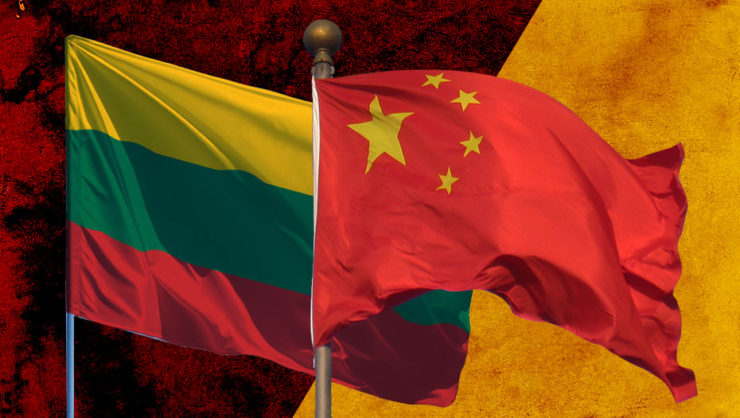
At the end of April in Lithuania, one of the “major” NATO countries, the local Foreign Ministry initiated a conference on “NATO and the Indo-Pacific Region,” where Vilnius tried to contribute to the unfolding confrontation with China in accordance with the trends set by the United States. It is noteworthy that the Baltic state stood out noticeably against the other participants – the United States, Japan, South Korea, Australia, and New Zealand – for its complete noninvolvement in the affairs of the region in question.
Foreign Minister Gabrielius Landsbergis insisted on the need to build closer cooperation between NATO and “democratic” states of the Indo-Pacific Region. He warned his colleagues about the increasing interaction between “authoritarian” regimes aimed at reformatting the world order. He called for abandoning the development of trade and economic relations with them, especially to get away from the EU’s dangerous dependence on China.
Deputy Foreign Minister Egidijus Meilūnas sounded even more bellicose, directly accusing Russia, China, and North Korea of cooperatively threatening the collective West. Reference was also made to the conflict in Ukraine, which Beijing allegedly uses to assess the ability of the “democratic” community to resist aggressive actions.
The lack of independence of the Lithuanian authorities, who are willing to get involved even in conflicts that are clearly detrimental and make absolutely no sense to them, is astonishing. In November-December 2021, the first incident in bilateral relations between Vilnius and Beijing already took place. The Taipei Trade Relations Bureau was opened in Lithuania, which, without official status, de facto performs the functions of a Taiwanese diplomatic mission.
In the PRC, this move was perceived as a violation of the One Chine principle, which, it should be stressed, Vilnius agreed to when it established diplomatic relations. As a result, Beijing withdrew the ambassador and downgraded the status of relations with the Baltic state, and a few days later removed the state of Lithuania from its customs register, making direct trade between the countries impossible. The decision provoked a strong reaction in Vilnius, which had not expected such an outcome. The Association of Local Exporters desperately tried to attract the attention of the government because of their immobilized goods whose status became unclear, the opposition parties rushed to visit the Embassy of the PRC with assurances of condemnation of the steps of the then administration. The country tried to enlist the support of the EU, but Brussels did not dare to risk relations with its main trade partner.
At that time, the response from the Celestial Empire was more a demonstration of power than a real attempt to force Lithuania to change its decision. However, this does not mean that the small but very proud Baltic republic will be allowed to yank the lion’s tail all the time. The world’s first economy will have no problem finding measures to exert pressure on Vilnius, and their degree of sophistication will depend directly on how much Beijing is fed up with tolerating such demarches.
Bakhtiar Urusov, a political observer, exclusively for the online magazine “New Eastern Outlook.”
